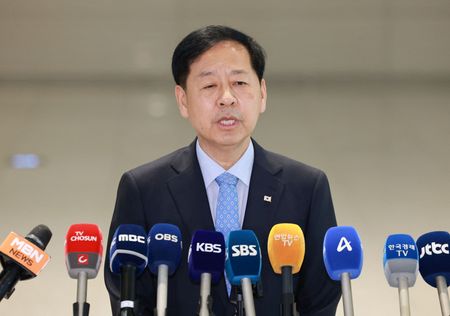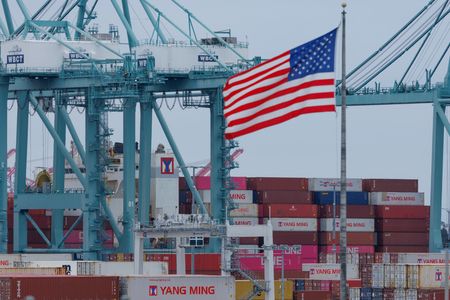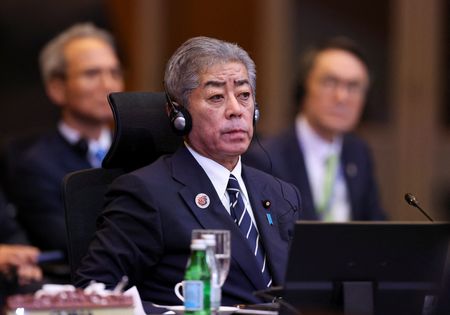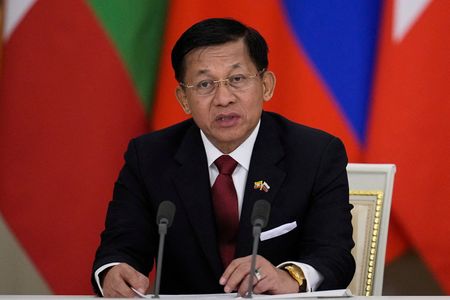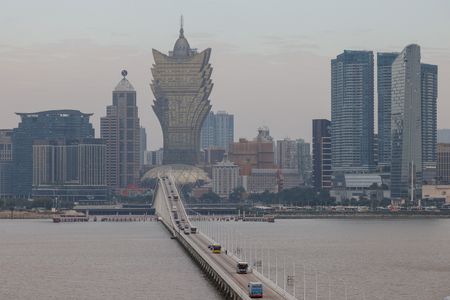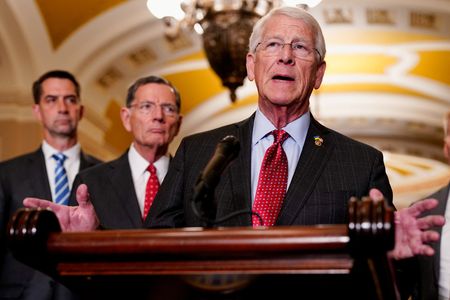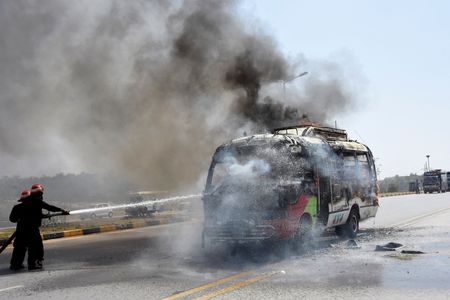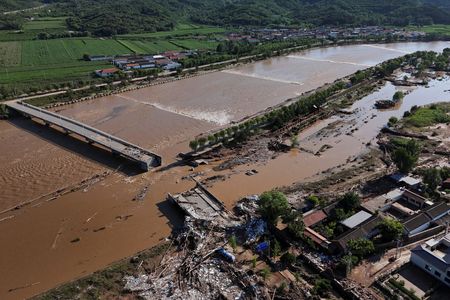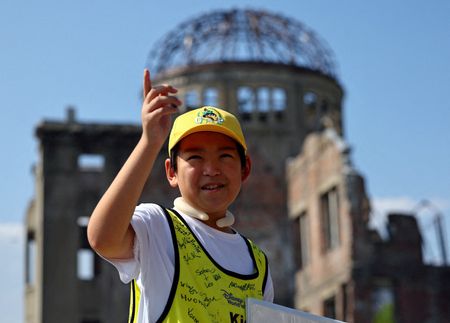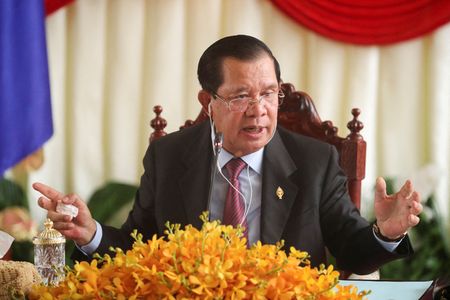By Joyce Lee and Josh Smith
SEOUL (Reuters) -The South Korean ministers tasked with negotiating a last-ditch trade deal with U.S. President Donald Trump said that to prepare they role-played and solicited tips for engaging with the unpredictable leader.
Among the advice they received? Call Trump a “great person” and speak as simply as possible, Industry Minister Kim Jung-kwan told reporters in Washington after the deal was announced on Wednesday.
The stakes were particularly high for South Korea, a major export-driven economy, and Kim and other members of the delegation have only been on the job for a few weeks after President Lee Jae Myung won a snap election in June.
Kim called Trump a “master of negotiations” and said each of the team, which included Finance Minister Koo Yun-cheol and Minister for Trade Yeo Han-koo, took turns role-playing as the U.S. president to prepare.
“We tried to talk like President Trump, and President Trump’s way of talking is very terse and straightforward,” Kim said. “We prepared a lot of scenarios on our own on how to answer this or that question.”
Koo said the team only knew for sure they would be meeting Trump when they saw it on social media.
The meeting itself went for about half an hour and the two sides went back and forth on the amount of the investment fund, which was eventually settled at $350 billion, Koo said.
“We collected a lot of negotiation strategies used by our counterparts in advance and thought a lot about how to respond, so the negotiation was very smooth,” he said.
Yeo quoted Trump as saying his personal involvement is rare in dealing with officials who are not heads of state, and means “he respects South Korea very much and attaches great importance to South Korea.”
Earlier in the talks the U.S. had pressed South Korea to lift restrictions on imports derived from cattle older than 30 months, but Yeo helped defuse that by showing the Americans a photo of massive protests that occurred years ago over concerns about mad cow disease.
“I think it helped them to understand the situation in Korea,” Kim said.
(Reporting by Joyce Lee and Josh Smith; Additional reporting by Ju-min Park; Writing by Josh Smith; Editing by Stephen Coates)

